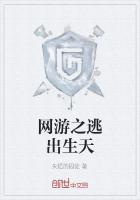Merchandise such as cloth, linen, leather, etc. is persishable also and cannot be subdivided without in some sort changing their value for the service of man. Like raw produce they cost a good deal for carriage; they even cause expense for storage, and consequently are unsuitable for a common measure.
Diamonds and other precious stones, even if they had no instrinsic value and were esteemed only from fancy, would be suitable for a common measure if they were not susceptible of imitation and if they could be divided without loss. With these defects and that of being unserviceable in use they cannot serve as a common measure.
Iron, which is always useful and fairly durable would not serve badly in default of a better. It is consumed by fire, and is too bulky owing to its quantity. It was used from the time of Lycurgus till the Peloponnesian War; but as its value was necessarily based instrinsically, or in proportion to the land and labour which entered into its production, a great quantity of it was needed for small value. It is curious that its quality was spoiled by vinegar to make it useless for service and to keep it for exchange only. Thus it could serve the austere Spartans alone, and could not continue to do so even with them as soon as they extended their communication with other countries. To ruin the spartans it needed only to find rich iron mines, to make money like theirs, and to draw in exchange their products and merchandise whilst they could get nothing from abroad for their spoiled iron. At that time they did not concern themselves with any foreign trade, but only with war.
Lead and tin have the same disadvantage of bulk as iron and are consumable by fire, but in case of need they would not do badly for exchange if copper were not more suitable and durable.
Copper alone served as money to the Romans until 484 years after the founding of Rome, and in Sweden it is still used even in large payments: but it is too bulky for very considerable payments, and the Swedes themselves prefer payment in gold or silver rather than in copper.
In the American Colonies tobacco, sugar, and cocoa have been used as money: but these commodities are too bulky, perishable, and of unequal quality: they are therefore hardly suitable to serve as money or a common measure of value.
Gold and silver alone are of small volume, equal goodness, easily transported, divisible without loss, convenient to keep, beautiful and brilliant in the articles made of them and durable almost to eternity. All who have used other articles as money return to these as soon as they can get enough of them for exchange. It is only in the smallest purchases that gold and silver are unsuitable. Gold or even silver coins of the value of a liard or a denier would be too small to be handled easily. It is said that the Chinese, in small transactions, cut off little pieces with scissors from their plates of silver, and weighed the pieces. But since their trade with Europe they have begun to use copper for such occasions.
It is then not surprising that all countries have arrived at using gold and silver as money or a common measure of value and copper for small payments. Utility and need have decided them, and not fancy or consent. Silver requires much labour and dear labour for its production. Silver miners are highly paid because they rarely live more than five or six years at this work, which causes a high mortality: and so a little silver coin corresponds to as much land and labour as a large copper coin.
Money or the common measure of value must correspond in fact and reality in terms of land and labour to the articles exchanged for it. Otherwise it would have only an imaginary value. If for example a prince or a republic gave currency in the state to something which had not such a real and instrinsic value, not only would the other states refuse to accept it on that footing but the inhabitants themselves would reject it when they perceived its lack of real value. When towards the end of the first Punic War the Romans wished to give the copper as, weighing two ounces, the same value as the as of 1 pound or 12 ounces had before, it could not long be maintained in exchange. The history of all times shews that when princes have debased their money, keeping it at the same nominal value, all raw produce and manufacturers have gone up in price in proportion to the debasement of the coinage.
Mr Locke says that the consent of mankind has given its value to gold and silver. This cannot be doubted since absolute necessity had no share in it. It is the same consent which has given and does give every day a value to lace, line, fine cloths, copper, and other metals. Man could subsist without any of these things, but it must not be concluded that they have but an imaginary value. They have a value proportionable to the land and labour which enter into their production. Gold and silver, like other merchandise and raw produce, can only be produced at costs roughly proportionable to the value set upon them, and whatever man produces by labour, this labour must furnish his maintenance.
It is the great principle that one hears every day from the mouths of the humble classes who have no part in our speculations, and who live by their labour or their undertakings.
"Everybody must live."
End of the first part.















